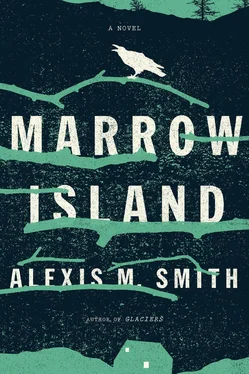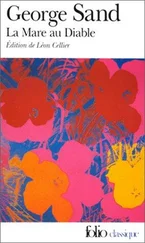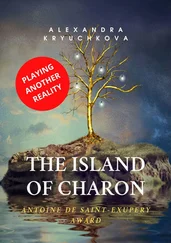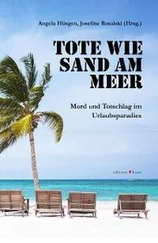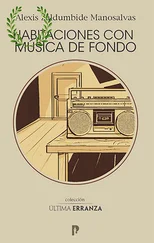My right ear was ringing; my headache hummed, and the light coming in from the far door made me turn back toward the recesses of the hut, where the bright white mycelium spawn, in their bags, in long wooden bins, seemed to give off a light of their own.
“Are you all right?” Jen reached for my arm.
“Yeah, I’ve just had this headache all day.”
Walking the path under the firs, I asked Jen how she first heard of Marrow.
“One of my professors at Evergreen had come out here. He was an ecologist, really into the microbial relationships. He was all charged up about soil remediation when he got back. And God. He said he felt God here.”
“God? This professor is a scientist?”
“I know. I’m an atheist,” she said. “I think he was somewhere in the Intelligent Universe camp, but he came back talking about God. I wanted to see for myself. Sister J. inspires different feelings in different people — for me, it’s not G-O-D. You’ve met her, right?”
I nodded. “I grew up Catholic; my dad’s parents were devout. They’re both gone now. And when my dad died, my mom and I just stopped going to church. I went to parochial school, an all-girls’ school. But I was never confirmed, and we don’t practice. I call us absentees.”
Jen shook her head. “Yeah, I can see how you might lose faith after losing your dad. Mine’s gone, too. But I was an atheist before then.”
“Are a lot of the colonists Catholic? Or were they?”
“Only about, maybe, a quarter of us. In the early days, there were more. There was a sort of radical environmental movement afoot in the Diocese, and Sister was the leader. She held meetings and gave talks on ‘earth ministry.’ When the archbishop told her she had to stop — you know, when the Church was investigating all the nuns for being social activists? — she walked away from her order. She said she had a higher calling to minister to the earth, not men. She gained a lot of supporters that way — outside of the church, too. Followers and benefactors. ‘Saints don’t follow orders,’ they say.” She turned to look at me, raised her eyebrows.
“Saints?”
“I don’t really believe in saints, but if anyone qualified, it would be Sister J. She put herself on the line. She did something she knew would get her kicked out of her order and her church, her whole life and community for twenty years, to try something no one had ever tried before.”
“The mycoremediation was her idea?” Wind snaked around our bodies and rattled fir needles onto the path and into our hair.
“She met a man who told her it was possible to clean up toxic soil with mycelia, and she knew of an island that needed to be cleaned up. It became her mission.”
Jen left me with Elle at the apothecary. We sat on the stoop, and she took my pulse at the wrist, first on one side, then the other.
“Does it have a center, or is the pain evenly spread?” she asked.
“It’s here,” I said, tracing the line of pain from my eyebrow to the bridge of my nose around to the inner socket.
She took my pulse again, her steady hands on my wrist, her head cocked to the side this time, like she was listening to my pulse.
We hadn’t met earlier; Elle wasn’t at lunch, no one mentioned why. She had been standing in the grass near the apothecary when we walked up, staring at something in the distance. She was tall and reedy, with short dark hair that curled over half her brow. She wasn’t what I thought she would be. I had had visions of an earthy woman in layers of flowing skirts and scarves, like a young Stevie Nicks. But Elle was boyish in a worn-out T-shirt and jeans, beautiful and androgynous in a way that both men and women probably found attractive. A small sea-worn shell, suspended from a silver chain around her neck, landed at her sternum. My eye was drawn to it, the chalk-white of the shell against the thinning white of the cotton.
“You didn’t sleep much last night?”
“No.”
“Okay. Come with me.” She stood up and disappeared behind the screen door, and I closed my eyes. The porch was shaded, but the meadow before it was blazing in the midday sun. My eyes prickled when I looked anywhere near it.
The cottage was cool and dark. I waited at the threshold for my eyes to adjust. There was a small living room with a wood stove, furnished with soft armchairs covered in pillows, a wooden table, and a bookshelf stocked with volumes on folk remedies and herbalism and Chinese medicine and nutrition. An amethyst geode the size of a human face rested in the center of the table. I squatted down to look and traced the crystal formations with a finger, rested my palm over the glassy curves. Elle appeared in the arch that led to the kitchen.
“I’ve just put the water on,” she said, not smiling, but not unkindly. She had a direct, gentle way about her.
In the kitchen, sunlight slid around the edges of a blood-red cloth in the window, but a cool breeze blew through the back screen. I walked around the room while Elle put herbs into a mortar and pestle at a worktable and the water simmered on an efficiency burner. In the place of a stove and refrigerator, there were dehydrators and drying racks, bundles of herbs hanging from them, mushrooms laid out to dry on sheets. The cupboard doors had been removed, and the shelves were lined with jars of herbs, labeled with names and dates. Each shelf had a label, too, indicating the family of herb stored there. There was an indentation in one wall that had once held a folding ironing board. The ironing board was gone, and the space now held small brown and blue dropper bottles of tinctures and flower essences.
“How long have you been here?” I asked.
“Almost eight years.” Elle looked up and out the back door, which led to the edge of the meadow and the start of the trees.
“You’re Jen’s partner?”
She nodded, continued her work. Jen was loquacious, outgoing; Elle was more reserved.
“Did you two meet here?”
“We did. I came to apprentice with Margaret — Maggie. She’s our midwife, our medicine woman.”
“I met her this morning,” I said. “She was milking the goats.”
“We all do, sometimes.” She nodded. “Even Sister J.”
The water was starting to boil. She poured it over a jar full of the herbs she had prepared for me, screwed on a cap.
“It just needs to steep. Do you often get headaches?” she asked. She wanted to turn the focus away from herself.
“Just in the last few years.”
“Stress, maybe?” she offered.
“Stress?”
“Are you stressed?”
“No.”
She looked at me and nodded like I was full of shit. I turned away.
“Can I touch?” I was standing over a tray of dark blue fungi.
Elle looked up. “Of course.”
“What are they?”
“ Cortinarius violaceus . Violet caps. About a week after the fall rains, we start collecting them.”
“What are they for?” I picked one up. It looked like a mushroom you’d buy in the grocery store, but it was the color of a varicose vein. I sniffed it.
“We’re not exactly sure about those.”
I looked at her curiously. She smiled for the first time.
“We only work with edible varieties in the apothecary. But part of what I’m working on for the Colony is understanding what each individual has to contribute to the health of the whole. In the beginning, we work with a combination of what we know and what we can intuit from what we know. We know, for example, that Cortinarius violaceus fruits in the early fall after warm rains. So, we might start by wondering whether they would be helpful for ailments induced by wet warmth, like certain kinds of rheumatism or influenza. Or we might wonder the opposite: if it might ameliorate ailments that are exacerbated by dry, cold climates. Cortinarius violaceus grows near conifers, but not just any conifers: it prefers the amabilis fir, Abies amabilis, which are rarer than noble and Douglas firs on the islands — and perhaps that has something to do with the sweet sap the amabilis exudes. Maybe the violet cap digests the sugars of the sap, and maybe it could be indicated for blood sugar regulation.”
Читать дальше
